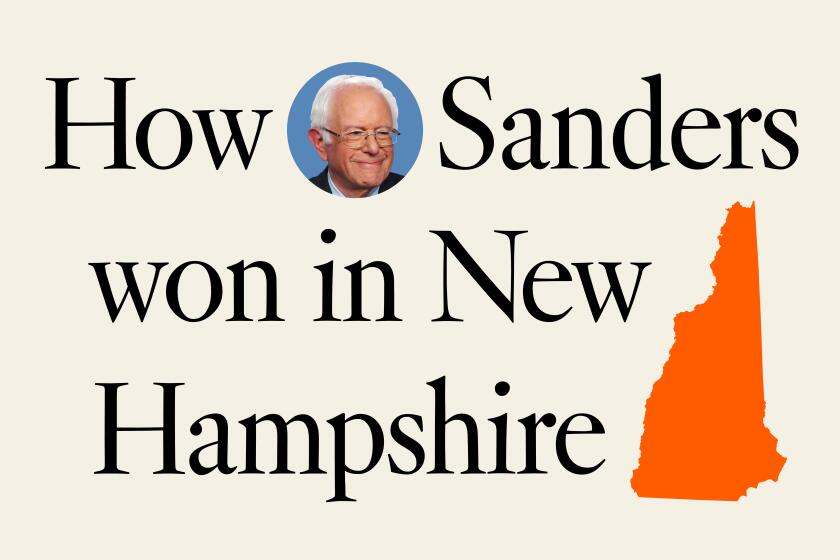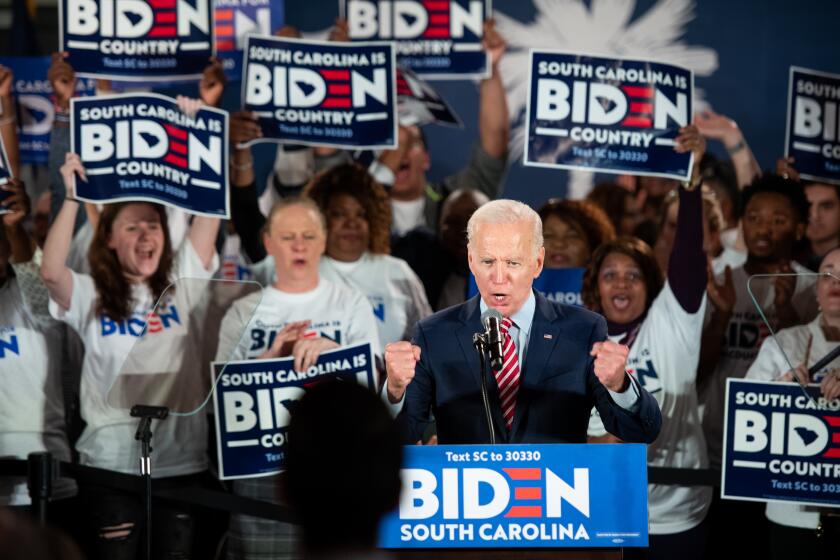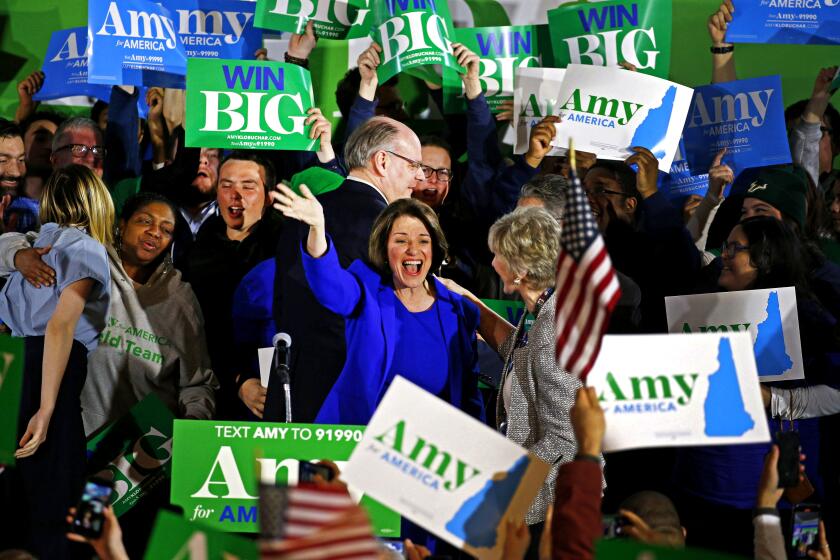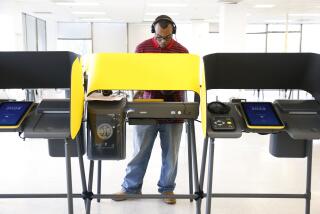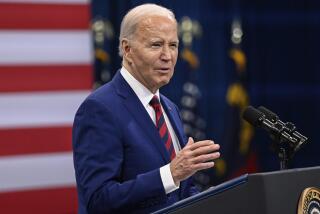Five takeaways from the New Hampshire primary
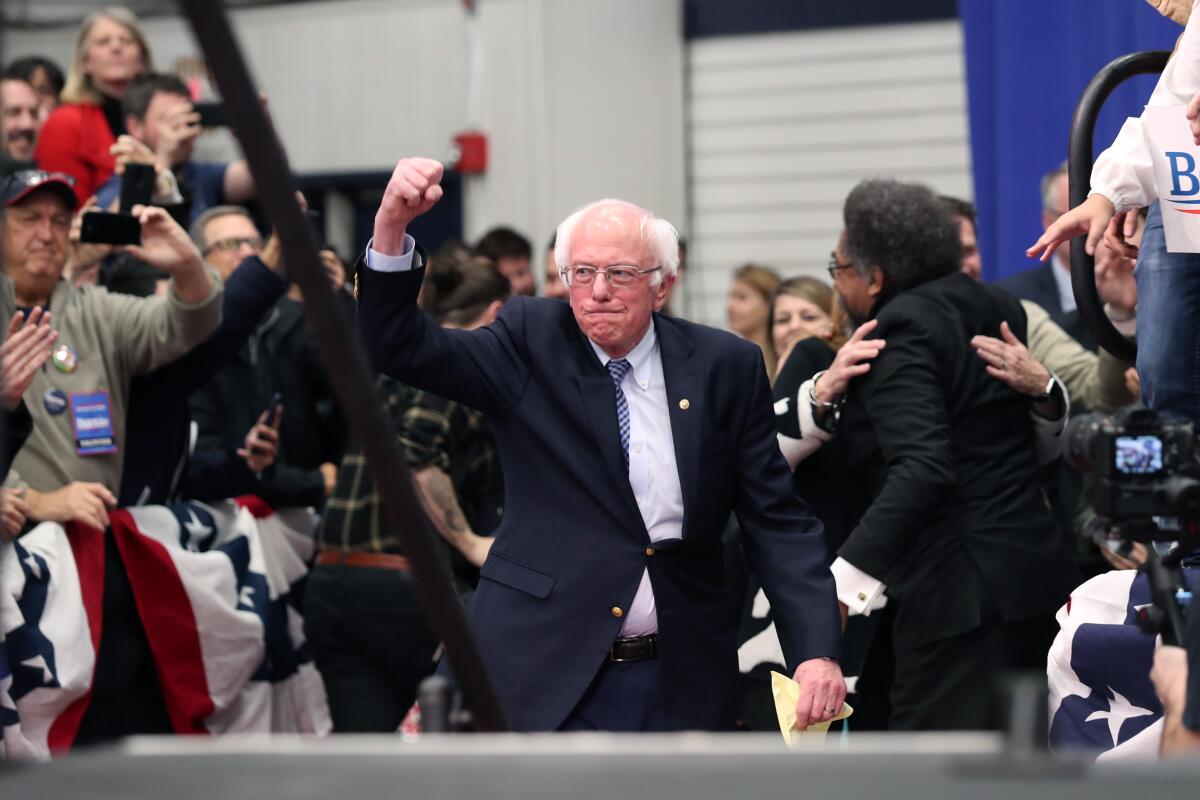
At least the voting systems worked this time.
Eager to move past the Iowa caucuses meltdown, Democrats went to the polls in New Hampshire on Tuesday and shook up the party’s presidential field.
Bernie Sanders pulled off a victory. Amy Klobuchar catapulted from also-ran to near the front of the pack. And the campaigns of two of the most prominent contenders, Joe Biden and Elizabeth Warren, were dealt crippling blows. Many in the party are looking for a moderate alternative to Sanders. But New Hampshire showed they can’t agree on whom that should be. And that is only further clearing a path for the senator from Vermont.
Biden and Warren in jeopardy
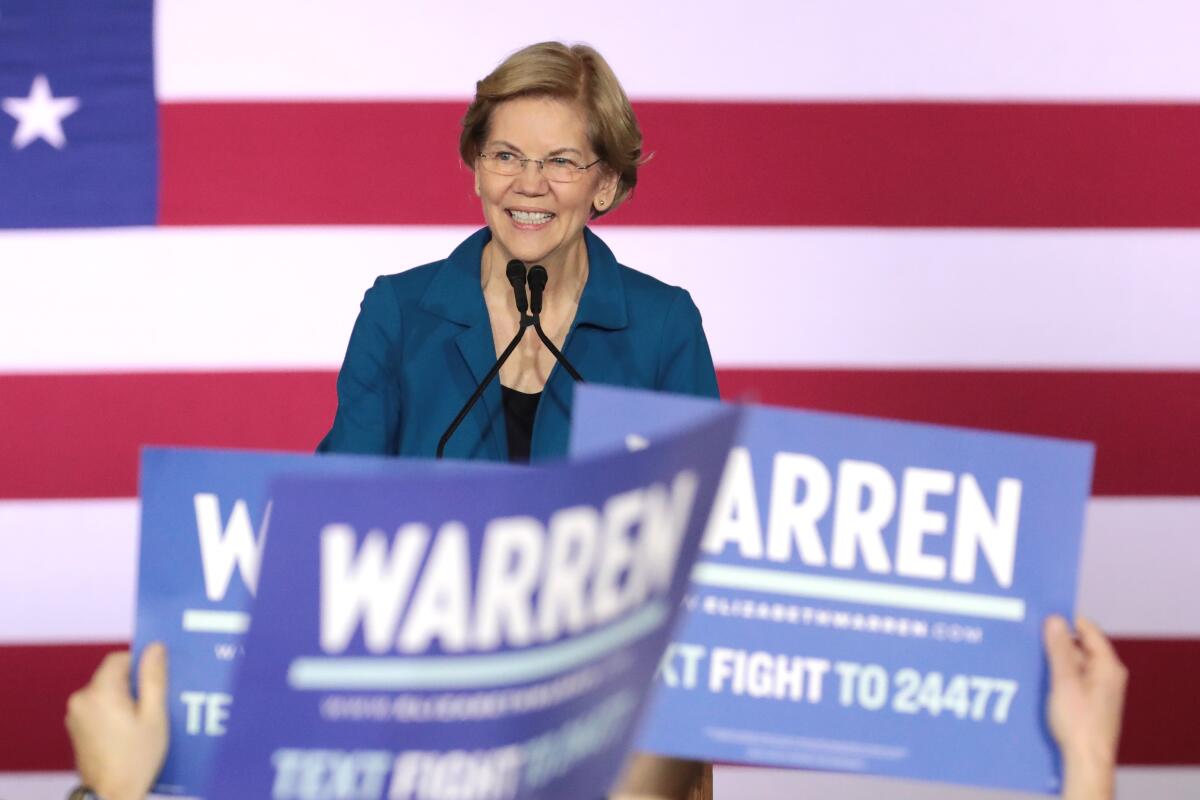
Former Vice President Biden and Massachusetts Sen. Warren are hemorrhaging voter support. The candidates, who entered the race as voter favorites, both finished so poorly in New Hampshire that they left the state with zero delegates, compounding the problems created by their disappointing showings in Iowa last week.
In Biden’s case, a presidential bid that once carried the aura of invincibility is now on life support.
Biden argues that the race is only getting started. Don’t judge the strength of his candidacy, he says, until voters have their say later this month in more diverse Nevada and South Carolina, two places where he has polled strongly for months.
But voters in those states, like everywhere else, are looking to back a winner. Biden’s weak performance in overwhelmingly white states with large populations of blue-collar workers is undermining his argument that he is the candidate positioned to win back exactly that demographic for Democrats.
Biden didn’t even stick around New Hampshire to wait for the results. He was already in South Carolina on election night — on a desperate mission to rescue his own campaign.
After lackluster performances in New Hampshire and Iowa, Joe Biden is counting on victory in South Carolina, helped by his support from African American voters.
Both Biden and Warren are vowing that they’re in it for the long haul. But the results are certain to alarm their donors, and both desperately need cash to have any hope of bouncing back.
Sanders advances
The Vermont senator won the state with a less comfortable margin than he would have liked, but won it nonetheless. Some may call it a “gimme” from his neighbors in the small state next to his own. They shouldn’t.
Sanders — for now — is stronger than any candidate in the field. Before New Hampshire voted, he edged into the lead in some nationwide polls for the first time. Biden’s collapse has created a path for the Vermonter. More voters are supporting moderates, yet none of the moderate candidates in the race is solidifying their support like Sanders is.
The campaign powerhouse he has been building for years will strengthen as a result, positioning him to gather delegates faster than any of his centrist opponents. They are splintering voter support between them as he dominates a motivated base of voters on the left.
That sound you’re hearing? It is the party establishment ringing the alarm bells.
Sanders, Buttigieg and Klobuchar take the top three spots in New Hampshire, while Elizabeth Warren and Joe Biden finish in single digits.
This thing could go on and on
The ascent of Minnesota Sen. Amy Klobuchar into the top tier leaves a cluster of moderates still competing to be the clear counterweight to Sanders. Both she and fellow Midwesterner Pete Buttigieg lack infrastructure and support in key states that vote in the next several weeks, creating little motivation for either Biden or Warren to exit the race just yet.
Any number of twists and turns could emerge before the field shakes out. A fight that rages on into the nominating convention in the summer is the last thing the party needs this cycle. But that risk increased a notch Tuesday.
Midwesterners flying high — with turbulence ahead
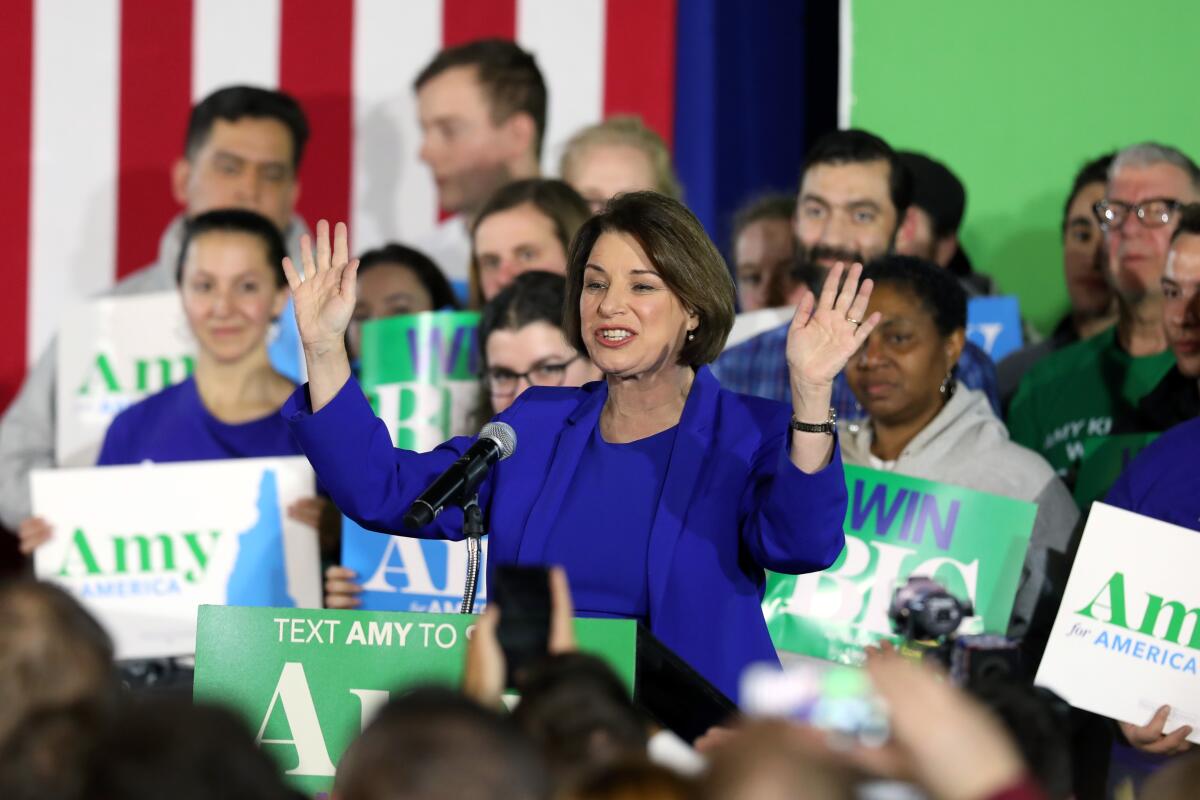
There is no denying Klobuchar and Buttigieg, the former South Bend, Ind., mayor, both have had phenomenal ascents. The 38-year-old Buttigieg came from out of nowhere a year ago to power his way to the front of the pack in this race. Klobuchar more recently went from the fringes of the race to near the front of it.
Yet both candidates are still looked at as big wild cards by many voters.
When Buttigieg’s rivals turned their fire on him over the last several days — Biden taking aim at his inexperience, and Sanders targeting his indebtedness to wealthy campaign donors — tracking polls suggest the former mayor’s momentum had stalled. And more attacks are sure to be coming. Klobuchar ascended so quickly — just since last weekend — that her rivals did not even have time to try to blunt the movement. She will now be a target.

But the bigger problem for both Midwesterners is they have minuscule support from African American voters. Even as a new Quinnipiac poll shows Biden’s support plunging among those voters, the shift hasn’t been to Buttigieg or Klobuchar. The poll shows that African American support heading mostly in the direction of billionaire Michael R. Bloomberg, the former New York mayor.
Buttigieg has long said African American voters weren’t supporting him because they didn’t know him. And Klobuchar says she, too, hasn’t been on the radar. The two are very much national figures now, but have little time to win over the African American vote, which is essential to capturing the nomination.
Bloomberg’s position strengthens
Bloomberg wasn’t on the ballot in New Hampshire, opting to focus instead on the more delegate-rich states, including California, that start voting when Super Tuesday arrives on March 3. But the results in New Hampshire position him well.
The billionaire’s entire case is built around the party needing a strong, tested candidate whom moderate voters can coalesce around. The New Yorker is promising to be the candidate Biden was supposed to be. Some voters are intrigued. Bloomberg’s poll numbers keep rising amid his spending blitz, and a large swath of New Hampshire voters told pollsters they would have liked for him to be on the ballot here.
If Klobuchar or Buttigieg does not quickly dominate that middle lane, they risk getting muscled right out of it when Bloomberg shows up alongside them on the ballot in March.
More to Read
Get the L.A. Times Politics newsletter
Deeply reported insights into legislation, politics and policy from Sacramento, Washington and beyond. In your inbox three times per week.
You may occasionally receive promotional content from the Los Angeles Times.
